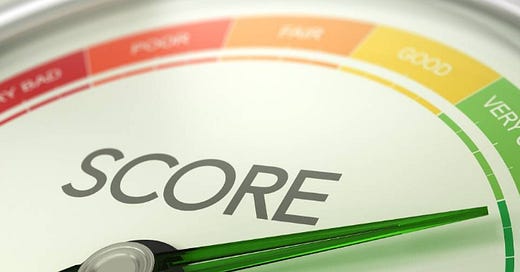Today, the North Dakota Watchdog Network is releasing its 2023 Legislative Scorecard to paid subscribers, legislators, and members of the media.
2023 Legislative Scorecard
In developing this year’s scorecard, a more nuanced approach was taken. The grading for the 2023 legislative session is based on 20 bills voted on by the House, and 18 bills voted on by the Senate. Some bill scores include multiple votes. Some bill scores omit certain votes. These variations are listed and described in the Bill Guide and Scoring Key.
Select bills were broken into two categories: Tax/Spending and Petitions/Campaign-Finance/Transparency, with Tax/Spending Bills comprising 60% of the final score, and each bill specifically weighted inside each category while simultaneously scoring multiple floor votes for each bill when appropriate to allow legislators the flexibility to not only be scored on one version of each bill. Because of this, we have eliminated the traditional “bonus points” attributed to sponsors and co-sponsors that can sometimes distort a real voting record. We have also made the decision not to include bills that were obvious “lost causes” that often inflate some legislator’s scores by valuing votes that were inconsequential.
FAQs:
Why develop a complicated weighting formula?
In past years when we have issued scorecards, objections have been raised about much value was placed on bills that had no chance of passage. With the 2023 scorecard, we have eliminated the bonus create by voting for the obvious “lost cause” bills, even if they are good bills.
Why not assign a letter or percentage grade?
The scores of House members range from a high of 1.18 and a low of -0.66, while the scores of Senate members range from a high of 0.49 to a low of -0.74. This score is not intended to be a direct metric of a legislator’s “conservativeness”. Long-time observers of the legislature will see a few names that stand out as being low on this scorecard, even though they are broadly considered “conservative”.
What is the point of a scorecard?
Many groups, including ours, have used scorecards as a means of separating “conservative” vs. “liberal” votes. This has been far too simplistic as it does not take into account other factors that go into voting one way or another on a certain bill. This year, our hope is to not only grade votes but portray to legislators the kinds of bills that deserve more consideration and promote a focus on those issues.
This scorecard is not meant to be a definitive indicator of whether a legislator is “conservative” or “liberal”, but rather to put the spotlight on the types of issues many conservatives would prefer the legislature to focus on with legislation, and correlate which legislators tend to vote in a way that best represents taxpayers - in our view.
Why no “social” or “culture war” bills?
There are plenty of other groups that focus on grading for the social issues or “culture wars” - and on these issues, true conservatives can disagree as to whether the government can or should play a role in those matters. North Dakota Watchdog Network’s focus is on fiscal and “open government” issues. Many of the social and cultural issues require expanded governmental power and spending to enforce, so if we were to score those issues, it would generally be to the detriment of many of the most conservative legislators.
What should citizens do with scorecards?
When it comes to any scorecard of legislators, citizens should use this information as a place to start a conversation with their legislators. Ask them why they voted a certain way. When compiling this data, one way we check for errors is if we see a legislator vote an unexpected way on a certain bill. This happens quite often and can give legislators a lower score than we think they should have based on their reputation. This is why citizens should not go based on just voting records alone, but should give their legislators a chance to explain themselves.
Why does Republican Leadership score so low?
It is a well-established pattern that legislators vote the opposite of what they would once they become part of leadership. This is because of the typical dynamic that forces leadership to be a “team player”. In many ways, becoming part of leadership in a legislative body is a curse as it will take a high-scoring conservative legislator and make them look average, and will make an average-scoring right-of-center moderate to seem terrible.
Note on Data:
Data for this scorecard was derived data-mining services, manual entry, and then cross-checked. If you find an error, please let us know so it can be corrected.
Want access to the scorecard?
Keep reading with a 7-day free trial
Subscribe to North Dakota's Watchdog Update to keep reading this post and get 7 days of free access to the full post archives.



